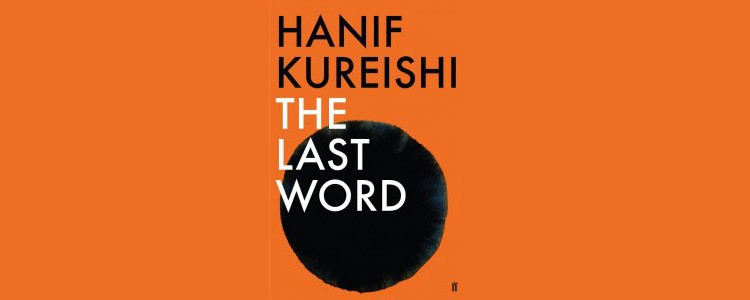Hanif Kureishi, “The Last Word”
 “Talent is gold dust. You can pan among a million people and come up with barely a scrap of it. Commitment to the Word stands against our contemporary fundamentalist belief in the market.”
“Talent is gold dust. You can pan among a million people and come up with barely a scrap of it. Commitment to the Word stands against our contemporary fundamentalist belief in the market.”
The Last Word is the latest novel by Hanif Kureishi. It is about an ageing and a once-upon-a-time-famous novelist, Mammon and his young biographer, Harry. Mammon is living the life of a recluse in the countryside with his second wife,Liana. He is crabbity, cantankerous and unable to rake in money as he did earlier. According to Liana, he is an old-fashioned novelist who writes his own novels! Mammon is alarmed at the rapidity with which his resources are dwindling while his wife ploughs through it for various expenses. Harry too has his fair share of challenges but he aspires to be a great novelist. So when commissioned by the maverick and brilliant publisher, Rob to ghostwrite a biography (“official portraitist”) of Mammon, Harry grabs the opportunity to do so–he has idolised Mammon from afar, apart from needing money himself to survive. The Last Word is about the relationship and the trajectory of a fading author’s career and a bit about how a flagging career can be turned around with astute marketing.
This novel seems to be based upon on Hanif Kuerishi’s years of experience as a writer, a creative fiction professor, an award winning and acclaimed novelist, and just an ordinary human being who is trying to get on with life. At times there is a strong feeling that this novel is an well-crafted excuse to deliver his maxims about what constitutes fiction. It is at times sparkling with its insights about contemporary literature and the desire to write in so many. He bursts many many bubbles and dreams of aspiring author. He shows the feet of clay that literary figures are supposed to have. He is quite dismissive of novelists as being tricksters, deceivers, conmen…mostly a seducer. He is scathing about the “gossipocracy of agents, publishers and writers, to stock up with as many stories of infidelity, plagiarism, literary feuding and deceit, cross-dressing, backstabbing, homosexuality, and in particular, lesbianism, as he could.” Mammon even invokes Boswell, the first literary biographer. Sprinkled throughout the novel are nuggets of wisdom ( such as the passage quoted above) that Hanif Kureishi has probably gleaned from his lectures and notes on creative writing. It is as if Hanif Kureishi has on more than one occasion uttered these words to his students. It rings true. I would not be surprised if he is invited to deliver the equivalent of the Norton Lectures at Harvard or the lectures on poetics at the Franklin University. Those are really well written, thought provoking and fabulous lectures that novelists of note are invited to deliver for a semester.
While reading this novel, it was difficult to not recall Andrew O’Hagan’s wonderful longread , “Ghosting” in London Review of Books ( LRB Vol. 36 No. 5 · 6 March 2014; pages 5-26 | 26468 words. http://www.lrb.co.uk/v36 /n05/andrew-ohagan/ghosting) It is about his attempts at ghostwriting a biography of Julian Assange, WikiLeaks founder. It was commissioned by Jamie Byng of Canongate. Unfortunately the commissioned biography was never published since Assange did not allow it to be. A response to this was published by the Guardian in early March written by Colin Robinson, “In Defence of Julian Assange”. ( the Guardian,Thursday 6 March 2014 15.24 GMT. http://www.theguardian.com/books/2014/mar/06/julian-assange-publisher-defence-wikileaks )
It is probably pure coincidence that The Last Word and these long reads about the ill-fated Assange biography were published at about the same time. It makes for a surreal experience to read a novel and reportage echoing each other. A fine dividing line ( if it exists!) between reality and fiction. Hanif Kureishi’s novel The Last Word is recommended reading, especially for aspiring writers.
Hanif Kureishi The Last Word Faber and Faber, London, 2014. Hb. pp. 286. £18.99
3 May 2014 <









